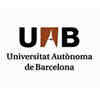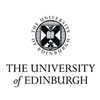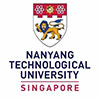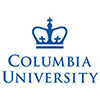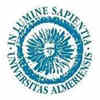瑞典隆德大学先进微流体研究博士后职位
瑞典隆德大学先进微流体研究博士后职位
Post-Doctoral Position In Advanced Microfluidics For Purification Of Extracellular Vesicles And For Characterization Of Bacterial Morphology
Lund University
Project description
Initially, the project focuses on performing nanofluidic sorting and biophysical characterization of extracellular vesicles. This will take place using advanced microfluidic techniques such as electrokinetic deterministic lateral displacement.
At a second stage of the project, deterministic lateral displacement will be complemented with visco-elastic sorting to elucidate the role of the shape of bacteria in terms of their capability to infect and to evade the immune system. It is known that certain bacteria can form structures such as pairs of bacteria or longer chains. However, it has been difficult to study these structures in detail due to a lack of sorting schemes. We have recently developed devices capable of sorting bacteria into different fractions based on their shape. In this way we can study each morphological subpopulation in detail in terms of how it develops over time, how the constituent bacteria interact with each other, how they interact with host cells, and how they interact with the immune system of the host.
The project will be carried out in close collaboration with relevant research groups in physical chemistry and biomedicine.
Work duties
The main duties involved in a post-doctoral position is to conduct research. Teaching may also be included, but up to no more than 20% of working hours. The position shall include the opportunity for three weeks of training in higher education teaching and learning. Description of work duties:
The postdoc will work in an interdisciplinary experimental project with responsibility for the development of simple and user-friendly microfluidic sorting mechanisms for extracellular vesicles as well as bacterial cells based on size, charge and morphology as well as microfluidic devices for trapping and monitoring of bacteria as they grow and interact with other bacteria or with host and immune cells.
The work is primarily of experimental nature with focus on microfabrication, design of sorting devices, and application of the results on biomedically and clinically relevant questions.
The project may include some modeling using fluidics simulation tools.
It may also include advanced superresolution microscopy using for example STED microscopy.
The postdoc will be responsible for maintaining the model systems used, i.e. relevant cell lines and bacteria, which come into play.
The postdoctoral fellow is expected to interact with the master students and the PhD students in the research group and contribute to meetings and seminars.
Qualification requirements
Appointment to a post-doctoral position requires that the applicant has a PhD, or an international degree deemed equivalent to a PhD, within the subject of the position, completed no more than three years before the last date for applications. Under special circumstances, the doctoral degree can have been completed earlier.
Additional requirements:
The subject of the doctorate degree should be physics, engineering or equivalent with focus on microfluidics.
Very good oral and written proficiency in English.
Assessment criteria and other qualifications
This is a career development position primarily focused on research. The position is intended as an initial step in a career, and the assessment of the applicants will primarily be based on their research qualifications and potential as researchers. Particular emphasis will be placed on research skills within the subject.
For appointments to a post-doctoral position, the following shall form the assessment criteria:
A good ability to develop and conduct high quality research.
Teaching skills. Included within this category are related experiences such as supervision of undergraduate students and training of new equipment users.
Additional assessment criteria:
The ability of skillful laboratory work is essential, specifically experience in clean-room work, surface chemistry, microfluidics, electrokinetics and culturing of cells and micro-organisms, as well as experience in working with optical microscopy.
Very good communication skills.
We expect that your undergraduate studies include courses in physics, statistics, biophysics and microfluidics. The research is to a large extent interdisciplinary, and a broad competence profile and experience from relevant areas of physics, biology and micro/nanoscience is of high value.
Important personal qualities are, beside creativity and a curious mind, the ability to work both independently and in a group, and experience in the scientific interaction with researchers from other disciplines and in other countries.
Consideration will also be given to good collaborative skills, drive and independence, how the applicant's experience and skills complement and strengthen ongoing research within the department, and how they stand to contribute to its future development.
Terms of employment This is a full-time, fixed-term employment of 2 years. The period of employment is determined in accordance with the agreement “Avtal om tidsbegränsad anställning som postdoktor” (“Agreement on fixed-term employment as a post-doctoral fellow”) between Lund University, SACO-S, OFR/S and SEKO, dated 4 September 2008.
Instructions on how to apply
Applications shall be written in English and be compiled into one or more PDF- files containing:
CV.
A general description of past experience in research and development, in particular in areas close to the subject area.
Contact information of at least two references
Copy of degree certificates and other certificates/grades that you wish to be considered.
Lund University welcomes applicants with diverse backgrounds and experiences. We regard gender equality and diversity as a strength and an asset. We kindly decline all sales and marketing contacts.







